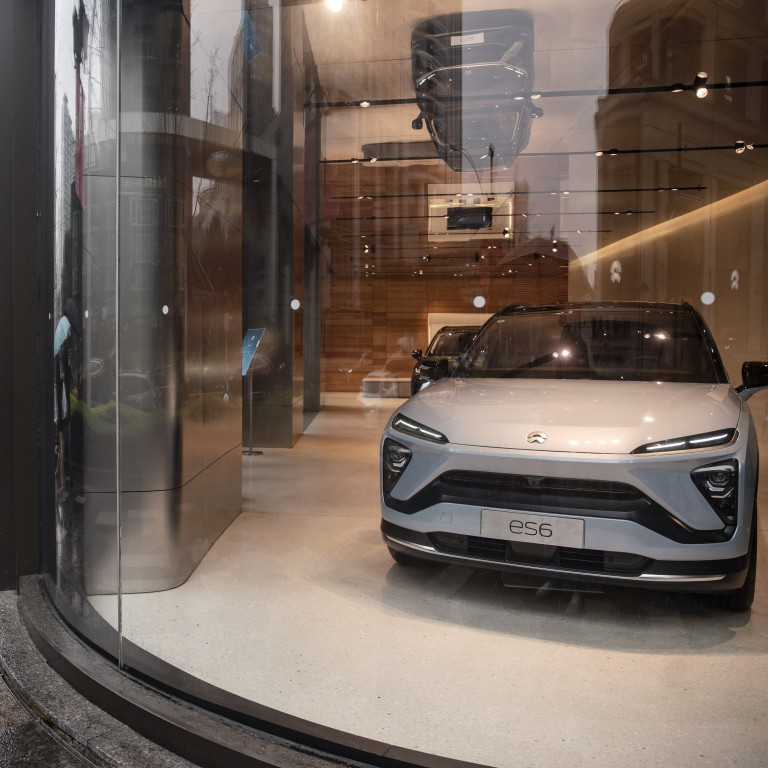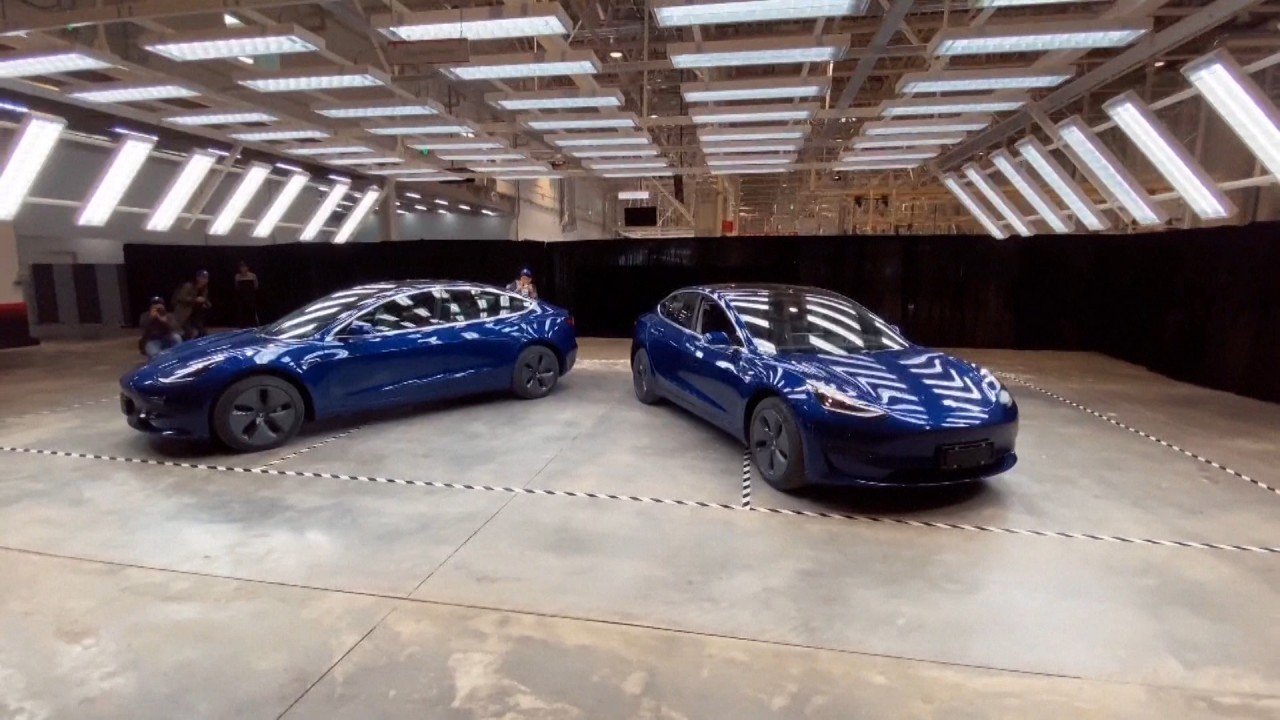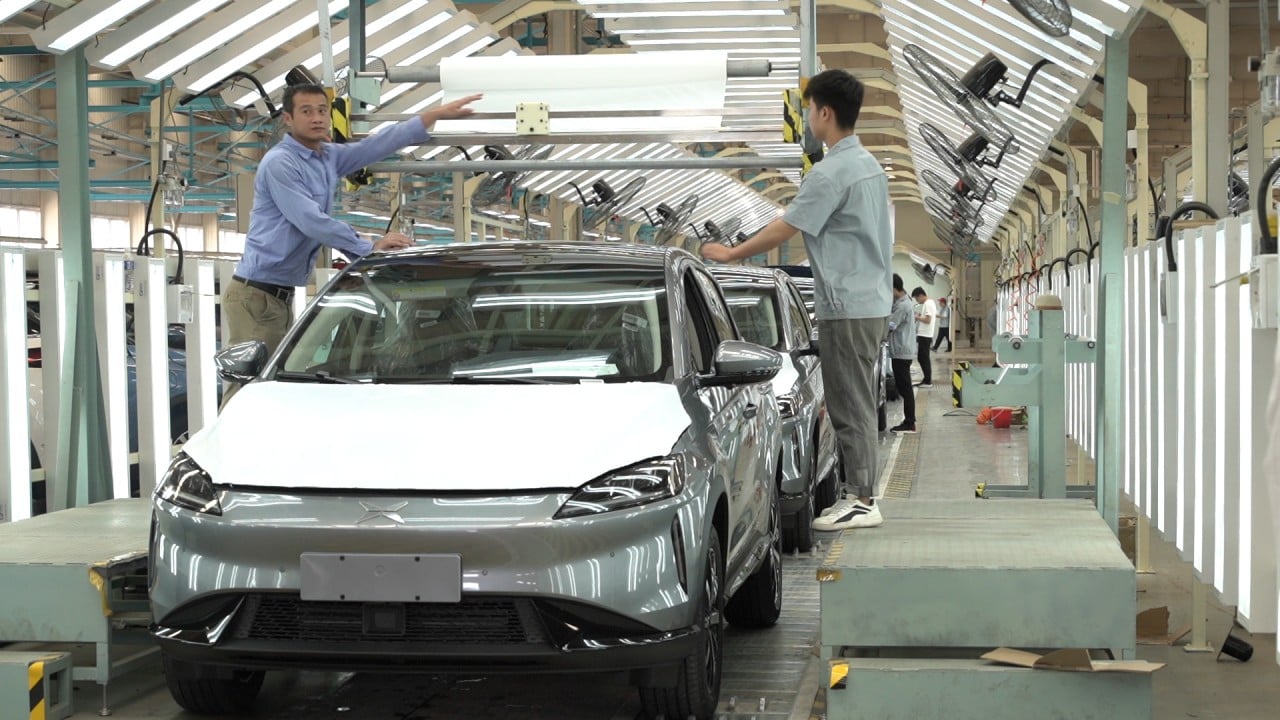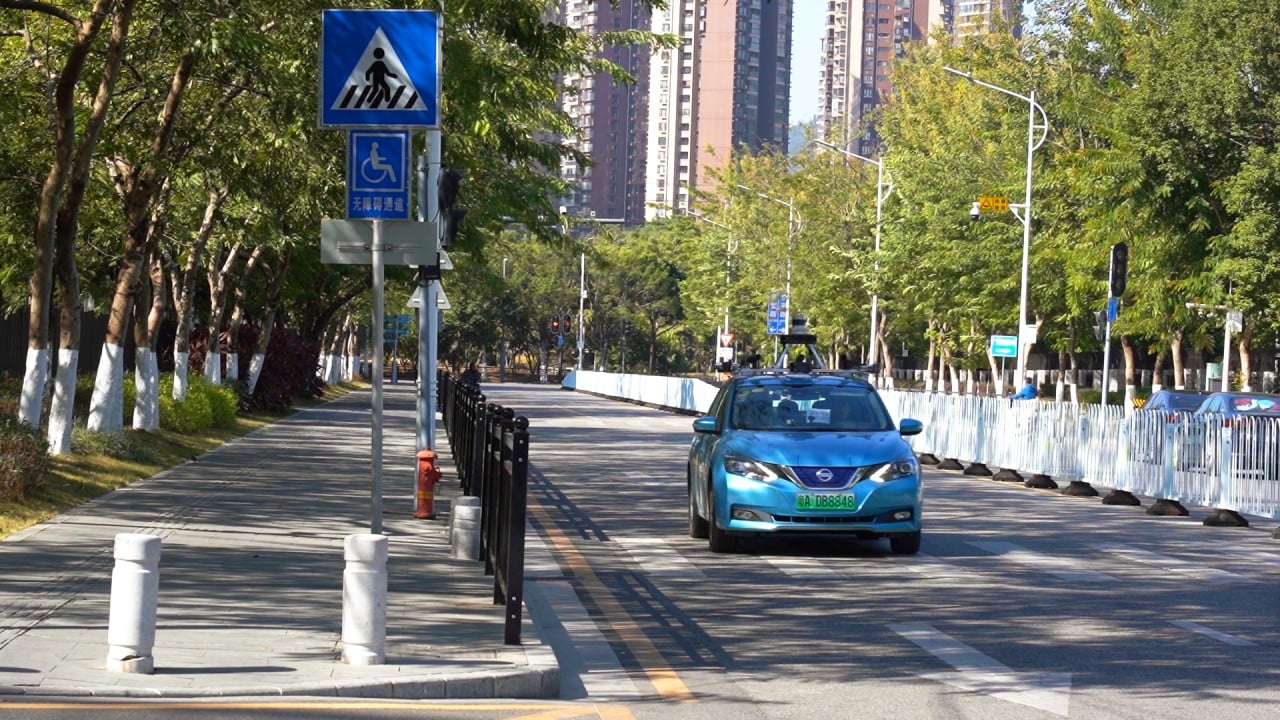
China’s Tesla challengers report record first-quarter sales, but still face uphill battle to catch global EV leader
- NIO and Xpeng reported a fivefold increase in first-quarter sales from a year ago as Chinese motorists switch to EVs
- Elon Musk’s company is still selling more cars in a single month in China than most of its local challengers are managing in a quarter
Although both saw deliveries surge more than fivefold from the same period of 2020, they are still a long way behind the American electric-car giant.
Shanghai-based NIO said on Thursday that it delivered 20,060 vehicles from January to March, a huge leap of 423 per cent from the same period a year ago.
Guangzhou-headquartered Xpeng sold 13,340 units in the same period, up 487 per cent.
It lowered the estimated production volume to 19,500 units for the first quarter, down from the previous target of 20,000- 20,500 vehicles.
Li Auto, the other leading Chinese electric car start-up seen as a challenger to Tesla’s dominance, has yet to publish quarterly sales figure.
In February, it predicted deliveries in the three months would be somewhere between 10,500 and 11,500 units, representing a year-on-year percentage increase in a range of 262.6 per cent to 297.1 per cent.
Despite the startling growth, the three companies are still lagging far behind the American giant on their home turf, which is the world’s largest EV market. Elon Musk’s company is selling more cars in a single month than most of its Chinese challengers are managing in a quarter.
Tesla delivered 18,318 vehicles – both Model 3s and Model Ys – in February alone, 470 per cent higher than the same month last year.
It delivered 4,630 Model Ys, more than double the 1,641 SUVs it sold in January, according to data compiled by the China Passenger Car Association.
In the first two months, the US carmaker delivered 33,802 vehicles, easily beating its Chinese rivals.
In 2020, Tesla, banking on its Gigafactory 3 in Shanghai, delivered about 140,000 Model 3s to customers in mainland China, accounting for about an eighth of the country’s total EV deliveries, which hit 1.17 million units.
Its mainland rivals saw a ray of hope after Tesla executives were grilled by regulators over safety issues and incidents reported by consumers last month.
The company said it was strengthening internal management at its Shanghai factory to better safeguard consumer rights.
Conventional carmakers such as Volkswagen, Zhejiang Geely Group and Dongfeng Motor announced plans to launch their own premium electric cars this year.
To meet its goal of carbon neutrality by 2060, Beijing is actively encouraging production and sales of new-energy vehicles (NEV) – pure electric, plug-in hybrid and fuel-cell cars – by granting cash subsidies, distribution of free car licence plates and reducing consumption tax.
China hopes 20 per cent of new cars – more than four million units – will be NEV by 2025.
Swiss bank UBS predicts it will surpass that target, with sales potentially topping 6.6 million units by that year.




